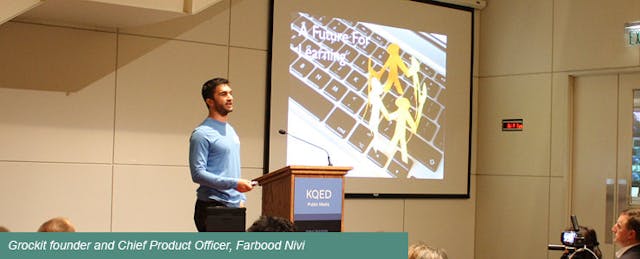Grok this. GigaOM reported that San Francisco-based Grockit is selling its test prep assets to Kaplan (a subsidiary of The Washington Post) and "abandoning its founding purpose all together."
Not quite, says Grockit founder Farbood Nivi. "The founding purpose of Grockit was social learning," he stated in an interview with EdSurge. "Learnist is, for me, an even greater representation of the vision I had in mind when I started Grockit."
Founded in 2007, Grockit made its name through offering a variety of test prep services for everything from AP exams to GMATs. The first sign of this pivot appeared in May 2012 when Grokit unveiled a new product, Learnist, that many have described as a "Pinterest for Education." In December 2012, it raised $20 million from Discovery Communication and others to support Learnist.
With the sale, Kaplan will take the Grockit brand, technology and test prep business. (Financial terms were not disclosed in the press release.) The Grockit team will remain in SF to double down on Learnist and become, in the words of Nivi, "the knowledge sharing social network."
Nivi shared that roughly 10 to 20 percent of Learnist's current one million users are teachers. Most of them have created learning boards organized around lesson plans, subjects, and Common Core standards. Others have been more creative. One geometry teacher, Nivi explained, asked his students to create learning boards based around lessons in the textbook, in effect asking them to find and curate their own supplemental online resources.
Possible revenue streams that Nivi discussed include advertisements (based on people and boards that users follow), sponsored posts, and premium content and features. But he added that the company has the luxury of being "super focused on engagement and growth, and should be good for the next 18 months." (Meaning: it doesn't have to worry about making money--yet.)
"I believe that knowledge sharing has been validated as a powerful part of the Internet," Farb quipped. So far, Learnist has about 250,000 items. One feature on the way "in the next couple of months" is a knowledge map that allows users to visualize the connections between different boards and items, based on category tags.
Perhaps then, we'll get to see what shared knowledge really looks like.
Disclosure: EdSurge has received support from The Washington Post. EdSurge is unaffiliated with Kaplan.


